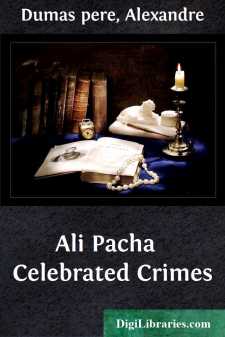Categories
- Antiques & Collectibles 13
- Architecture 36
- Art 48
- Bibles 22
- Biography & Autobiography 813
- Body, Mind & Spirit 142
- Business & Economics 28
- Children's Books 17
- Children's Fiction 14
- Computers 4
- Cooking 94
- Crafts & Hobbies 4
- Drama 346
- Education 46
- Family & Relationships 57
- Fiction 11829
- Games 19
- Gardening 17
- Health & Fitness 34
- History 1377
- House & Home 1
- Humor 147
- Juvenile Fiction 1873
- Juvenile Nonfiction 202
- Language Arts & Disciplines 88
- Law 16
- Literary Collections 686
- Literary Criticism 179
- Mathematics 13
- Medical 41
- Music 40
- Nature 179
- Non-Classifiable 1768
- Performing Arts 7
- Periodicals 1453
- Philosophy 64
- Photography 2
- Poetry 896
- Political Science 203
- Psychology 42
- Reference 154
- Religion 513
- Science 126
- Self-Help 84
- Social Science 81
- Sports & Recreation 34
- Study Aids 3
- Technology & Engineering 59
- Transportation 23
- Travel 463
- True Crime 29
Sort by:
PROLOGUE On the 8th of April, 1492, in a bedroom of the Carneggi Palace, about three miles from Florence, were three men grouped about a bed whereon a fourth lay dying. The first of these three men, sitting at the foot of the bed, and half hidden, that he might conceal his tears, in the gold-brocaded curtains, was Ermolao Barbaro, author of the treatise 'On Celibacy', and of 'Studies in...
more...
CHAPTER I. THE PORTE ST. ANTOINE. On the 26th of October, 1585, the barriers of the Porte St. Antoine were, contrary to custom, still closed at half-past ten in the morning. A quarter of an hour after, a guard of twenty Swiss, the favorite troops of Henri III., then king, passed through these barriers, which were again closed behind them. Once through, they arranged themselves along the hedges, which,...
more...
MONSIEUR DE GUISE'S LATIN. On Monday, the 18th of August, 1572, there was a splendid festival at the Louvre. The ordinarily gloomy windows of the ancient royal residence were brilliantly lighted, and the squares and streets adjacent, usually so solitary after Saint Germain l'Auxerrois had struck the hour of nine, were crowded with people, although it was past midnight. The vast, threatening,...
more...
CHAPTER I In the night of the 15th of January 1343, while the inhabitants of Naples lay wrapped in peaceful slumber, they were suddenly awakened by the bells of the three hundred churches that this thrice blessed capital contains. In the midst of the disturbance caused by so rude a call the first thought in the mind of all was that the town was on fire, or that the army of some enemy had mysteriously...
more...
CHAPTER I The beginning of the nineteenth century was a time of audacious enterprises and strange vicissitudes of fortune. Whilst Western Europe in turn submitted and struggled against a sub-lieutenant who made himself an emperor, who at his pleasure made kings and destroyed kingdoms, the ancient eastern part of the Continent, like mummies which preserve but the semblance of life, was gradually...
more...
Just about a year ago my old friend, Jules Simon, author of "Devoir," came to me with a request that I write a novel for the "Journal pour Tous." I gave him the outline of a novel which I had in mind. The subject pleased him, and the contract was signed on the spot. The action occurred between 1791 and 1793, and the first chapter opened at Varennes the evening of the king's arrest....
more...
If our readers, tempted by the Italian proverb about seeing Naples and then dying, were to ask us what is the most favourable moment for visiting the enchanted city, we should advise them to land at the mole, or at Mergellina, on a fine summer day and at the hour when some solemn procession is moving out of the cathedral. Nothing can give an idea of the profound and simple-hearted emotion of this...
more...
Chapter 1. A Grateful People On the 20th of August, 1672, the city of the Hague, always so lively, so neat, and so trim that one might believe every day to be Sunday, with its shady park, with its tall trees, spreading over its Gothic houses, with its canals like large mirrors, in which its steeples and its almost Eastern cupolas are reflected,—the city of the Hague, the capital of the Seven United...
more...
Should you ever go to Rome and visit the villa Pamphili, no doubt, after having sought under its tall pines and along its canals the shade and freshness so rare in the capital of the Christian world, you will descend towards the Janiculum Hill by a charming road, in the middle of which you will find the Pauline fountain. Having passed this monument, and having lingered a moment on the terrace of the...
more...
AN OLD NOBLEMAN AND AN OLD MAÎTRE-D'HÔTEL. It was the beginning of April, 1784, between twelve and one o'clock. Our old acquaintance, the Marshal de Richelieu, having with his own hands colored his eyebrows with a perfumed dye, pushed away the mirror which was held to him by his valet, the successor of his faithful Raffè and shaking his head in the manner peculiar to himself, "Ah!"...
more...











